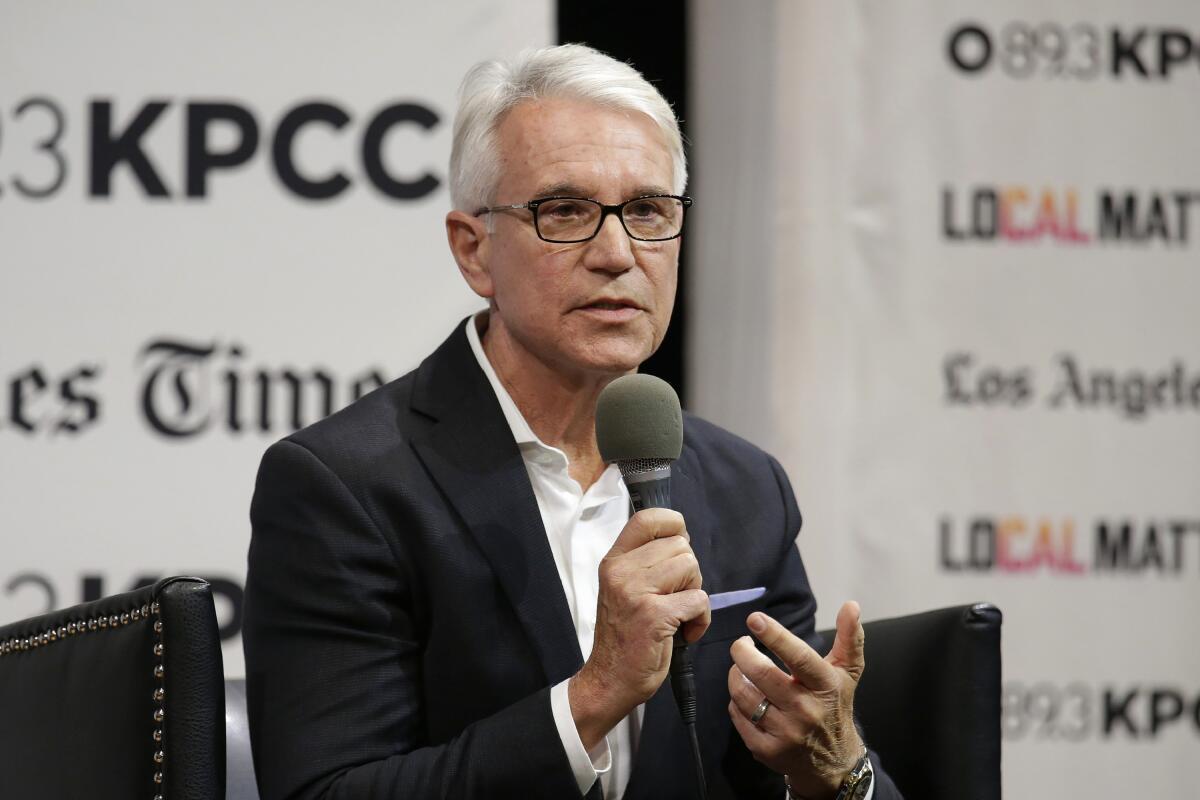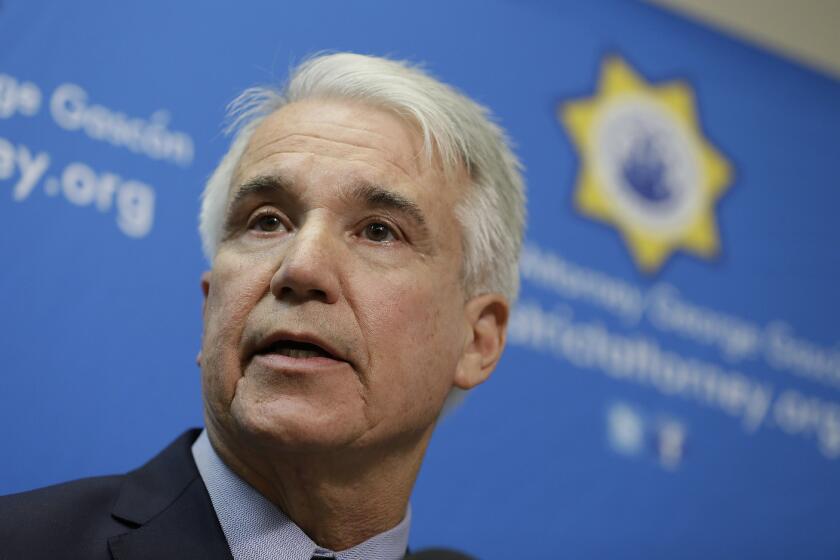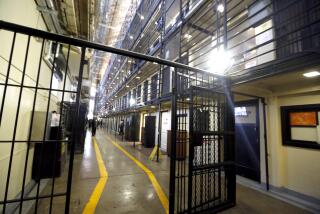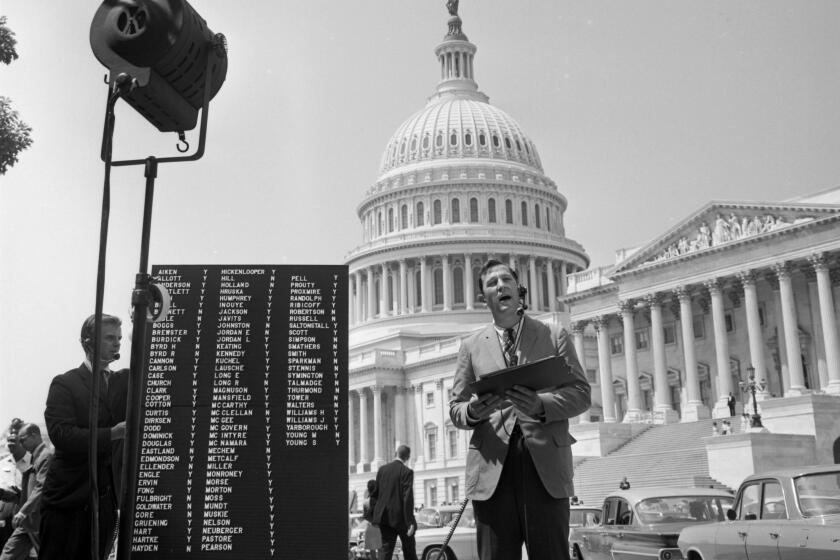Editorial: D.A.-elect George Gascón’s ban on new death sentences is a welcome change

The election of George Gascón as Los Angeles County district attorney not only marks a shift toward more progressive criminal justice priorities but also moves us yet another step away from capital punishment. Since the election, Gascón has reaffirmed his campaign pledge not to seek the death penalty and to try to rescind existing death sentences already handed down in L.A. County murder cases, which account for nearly a third of California’s more than 700 condemned prisoners.
The county’s disproportionate share of death row inmates reflects the fact that, despite its liberal reputation, Los Angeles historically has been unusually aggressive in pursuing death sentences. Gascón’s declaration is a welcome if overdue step, and it’s in line with a years-long decline in executions nationwide.
At the state level, California executions had already been frozen by court orders when Gov. Gavin Newsom — a longtime death penalty opponent and a political ally of Gascón — announced last year that he would sign no death warrants while serving as governor. Newsom also voided the state’s single-drug execution protocol and mothballed the death chamber at San Quentin. But capital punishment still remains on the state books, a gubernatorial moratorium can easily be undone by the next governor, and a new district attorney could decide to resume seeking death sentences once Gascón leaves office.
Californians on Tuesday took a long stride forward, rejecting stiffer punishments, restoring parolees’ voting rights and, in Los Angeles County, electing a new district attorney who campaigned on a promise to bring more equity and balance to criminal prosecutions.
And some prosecutors continue to seek death sentences, although the number has dropped significantly over time. According to preliminary data from the Death Penalty Information Center, California juries so far this year have recommended seven defendants be put to death — two each in Los Angeles, Riverside and Tulare counties, and the seventh in San Bernardino County. Three of those sentences have been affirmed by judges; the others are pending.
Executions nationwide declined significantly in 2020, with 14 executions to date and four more scheduled before the end of the year. That’s down from 22 executions in 2019, continuing a long-term trend away from the practice. But this year also was influenced by two unexpected and conflicting forces.
On one hand, the COVID-19 pandemic led several states to suspend executions to avoid potentially exposing corrections teams to the virus. But on the other, the federal government reemerged as a force in capital punishment, executing seven people this year and scheduling three more for death through December — the first federal executions in nearly two decades. The restarting of federal executions can only be read as a cynical play by the Trump administration to burnish its “law and order” credentials.
The L.A. County Board of Supervisors shouldn’t be afraid to ask if there is a better way to select a sheriff, in order to ensure accountability.
And yes, the condemned were convicted of murder, a heinous crime. But that doesn’t mean the government should put them to death for it, especially since death sentences fall disproportionately on lower-income people of color. They also vary by geography, and by who happens to be the district attorney making the decision whether to press capital charges.
Gascón has said that in addition to not seeking capital punishment in the future, he will drop the pursuit of executions in cases now being prosecuted under Dist. Atty. Jackie Lacey, who has overseen more than 20 death sentences. Although we applaud Gascón’s decision, it spotlights exactly how arbitrary the death penalty is in practice. Without any changes in the underlying facts of the cases, a change in who will be the Los Angeles County district attorney means people who currently are facing capital charges will, in a matter of weeks, no longer be under that threat. There’s no word other than arbitrary for a death penalty system that, rather than judiciously punishing the “worst of the worst,” hinges on prosecutors’ opinions about who should live or die.
Why should most people care about whether some convicted murderers get executed? Because these killings are being done in the name of the people, and at a cost over the years of billions of tax dollars. It’s expensive and immoral, and the U.S. stands as an international outlier as most of the rest of the world long ago abandoned this barbaric practice.
Executions do not deter others from killing, and capital punishment continues a system of justice rooted in our history of racial inequality. As the nation laudably has come this year to a broader recognition of the effects of institutional racism, it ought to recognize the grotesque inhumanity of allowing the execution of people found guilty in a criminal justice system that we know to be deeply unjust.
More to Read
A cure for the common opinion
Get thought-provoking perspectives with our weekly newsletter.
You may occasionally receive promotional content from the Los Angeles Times.







